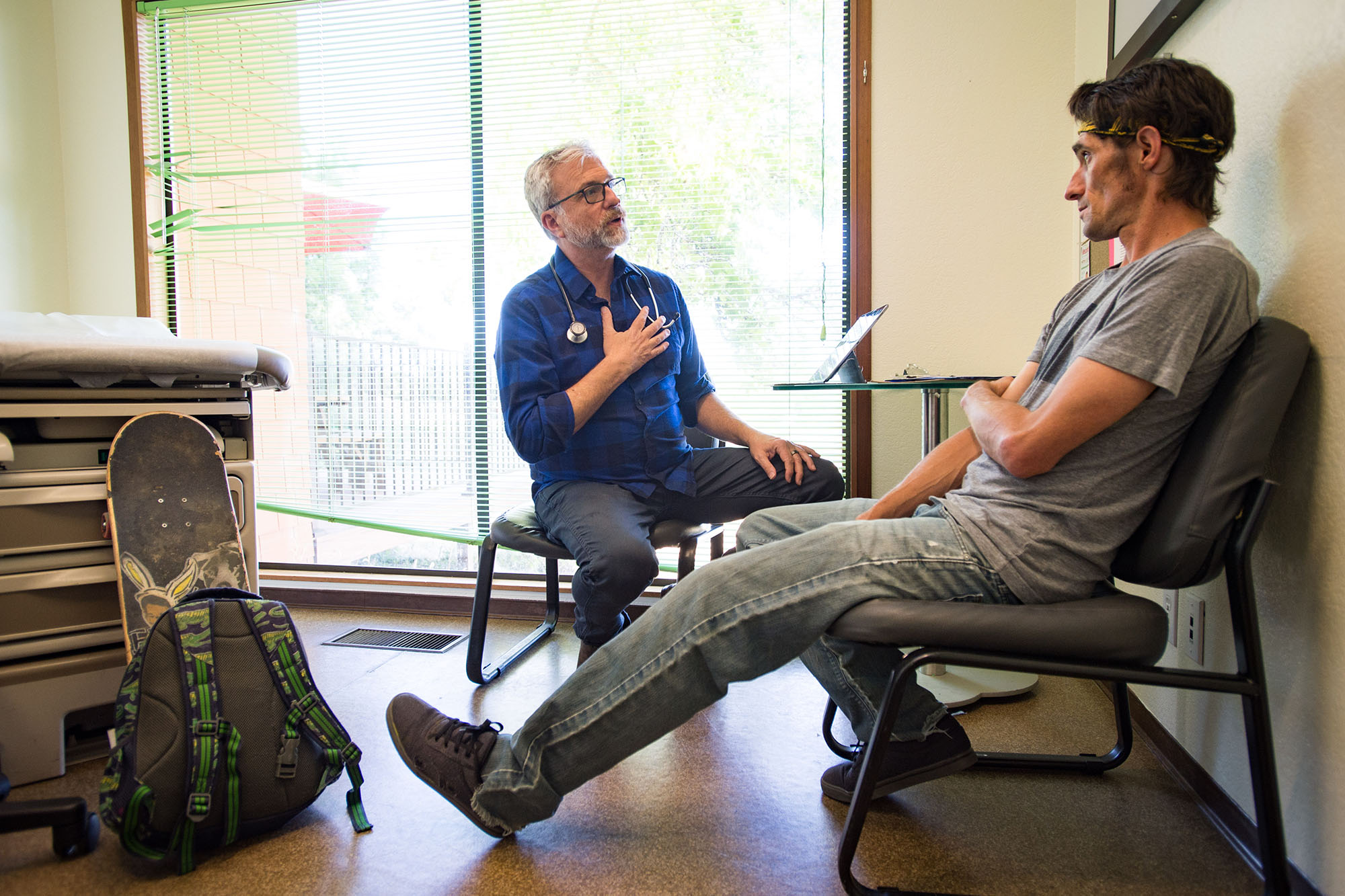
In this week’s high-profile strike by mental health workers against Kaiser Permanente, the debate has centered on limited patient access to timely behavioral health services. No matter how Kaiser and its workers ultimately settle their differences, the labor dispute has drawn the media spotlight to long wait times for mental health and substance use disorder treatment, and it has underscored the urgent need for state health policy leaders to reduce California’s worsening shortage of behavioral health providers.
The industry labor shortage contributes to the fact that two-thirds of adults with mental illness do not get treatment. And the picture is made more bleak when one considers that the existing mental health workforce is aging, with 45% of psychiatrists and 37% of psychologists already over age 60.
Without meaningful action to align the supply of behavioral health workers with growing demand for their services, California is headed for a crisis.
When Supply Doesn’t Equal Demand
The fact that many providers struggle to ensure timely access to behavioral health services has persuaded experts that systemwide solutions are needed. Supply is not aligned with demand, said Janet Coffman, MPP, PhD, a health services researcher and professor at the UCSF School of Medicine’s Institute for Health Policy Studies. She published a paper this year on California’s behavioral health workforce.
By 2028, California will have only about half of the psychiatrists that it will need to serve everyone needing treatment, and it will have 28% fewer psychologists, social workers, and counselors than will be necessary to meet the projected demand, Coffman said. In some underserved communities and regions, the numbers will be even worse, she said.
According to Coffman, the shortage of clinicians causes delays in treatment — a phenomenon that can be deadly in the midst of an epidemic of opioid misuse and addiction.
“Getting timely access to treatment matters if you’re having a crisis,” she said. “If someone says, ‘I am ready for detox, I’m ready to quit,’ getting them into treatment quickly is essential. If they can’t go to detox or other treatment, their resolve may weaken, they may fall back.”
“If you emphasize mental health in your health care system, your health care system will cost less because people’s results in other areas of health care will be much, much better.”
— State Senator Jim Beall
Access to behavioral health care was bolstered by the passage of the Affordable Care Act, which allowed states to expand eligibility for Medicaid and broadened the scope of covered behavioral services. California’s Medicaid program, Medi-Cal, grew by almost 4 million, reaching 13.1 million people.
But progress in expanding access has been limited by the unwillingness of many mental health providers to accept Medi-Cal patients, Coffman said. In 2015, Coffman and her colleagues found that only 46% of California psychiatrists accepted Medi-Cal.
The Cost Factor
In fact, Coffman found that almost one-quarter of psychiatrists, along with a large but unknown number of other behavioral health providers, don’t accept any form of health insurance. Even patients with commercial insurance frequently pay a large share of the cost of behavioral health services.
“If you have to pay the whole thing out of pocket, you have to ask: ‘Can I trim my budget in other areas enough to do this?’ For a lot, they say ‘No, I can’t.’”
In California, different players will be working in 2019 to expand the behavioral health workforce and put help within reach of more people.
“We must broaden access in California and have more mental health workers,” said California State Senator Jim Beall (D-San Jose), chairman of the Senate Mental Health Caucus and the Select Committee on Mental Health. He already has three bipartisan bills for 2019 that aim to improve access to behavioral health care and increase accountability:
- SB 10 would establish a state certification process for peer providers who work with people coping with mental illness or recovering from addiction.
- SB 11 would require health care service plans and health insurers to submit annual public reports to ensure compliance with mental health parity laws.
- SB 12 would declare the state’s intention to amend the Mental Health Services Act (Proposition 63) to authorize state and local governments to establish 100 drop-in centers to enable young people at risk of suicide to make a successful transition to adulthood.
“If you emphasize mental health in your health care system, your health care system will cost less because people’s results in other areas of health care will be much, much better,” Beall said.
In January, the California Future Health Workforce Commission will release a final report with recommendations for action. Last year, it began investigating strategies to address workforce challenges, and behavioral health is one of the group’s main areas of concern.
The 24-member commission is cochaired by University of California President Janet Napolitano and Dignity Health President and CEO Lloyd Dean. It is composed of top leaders in California health care, higher education, and business. The commission is supported by The California Endowment, the Blue Shield of California Foundation, The California Wellness Foundation, the California Health Care Foundation, and the Gordon and Betty Moore Foundation.
Authors & Contributors

Rob Waters
Rob Waters is an award-winning health and science writer whose articles have appeared in BusinessWeek, Mother Jones, Stat, San Francisco magazine, the San Francisco Chronicle Sunday magazine, the Los Angeles Times, and many other publications. He is the founding editor of MindSite, a digital publication covering mental health news scheduled to launch in fall 2021.





